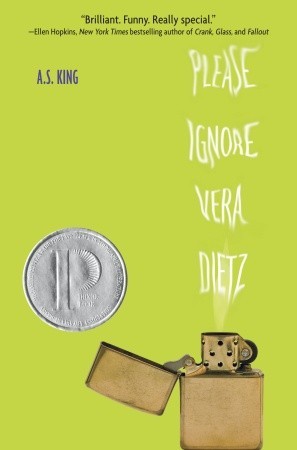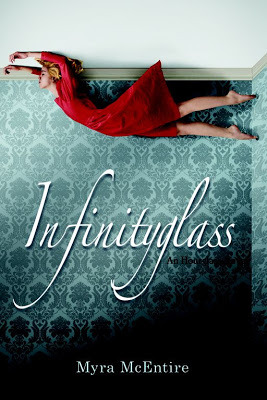I think you all know how much I loved Markus Zusak’s book, The Book Thief. Both the story itself and the way it is told are beautiful and moving in a way I hadn’t experienced in other books. After reading The Book Thief, I had several friends recommend another of Zusak’s critically acclaimed novels, I Am the Messenger. They swore that although the reading experience was very different from Book Thief, it was just as rewarding.
It’s true that I Am the Messenger varies significantly from The Book Thief. It takes place in Australia, not Germany; the narrator is a 19-year-old cab driver, not Death; and the story revolves around the stagnant and hapless Ed Kennedy instead of the clever and quietly defiant Liesel Meminger. But it still utilizes Zusak’s captivating prose, and his wholly unique method of storytelling.
The Plot (from Goodreads):
Ed Kennedy is an underage cabdriver without much of a future. He’s pathetic at playing cards, hopelessly in love with his best friend, Audrey, and utterly devoted to his coffee-drinking dog, the Doorman. His life is one of peaceful routine and incompetence until he inadvertently stops a bank robbery.
That’s when the first ace arrives in the mail.
That’s when Ed becomes the messenger.
Chosen to care, he makes his way through town helping and hurting (when necessary) until only one question remains: Who’s behind Ed’s mission?
My Thoughts:
I have a hard time summing up my thoughts on this book. I’ve been thinking about it for months, trying to come up with a neat little 3-paragraph blurb that can adequately encompass I Am the Messenger, and I’m not sure it’s possible. I can say I liked it. I can say that the audio narration is excellent. I can say that it was smart and funny and touching and wholly original. I can say I’m still not sure I liked the ending. But I’m not sure that really covers it. So I’ll just do my best, and you’ll have to take my word for it that this book is one that really must be experienced to be understood, and nothing I can say in a review will really do it justice.
From the opening moments, Zusak grounds the story with Ed Kennedy’s authentic voice, and I immediately settled into the mind of this 19-year-old unmotivated cab driver, who in a moment of uncharacteristic fervor, foils a bank robbery. Ed’s not quite sure why he does it, but his choice is the catalyst for all that comes next. He starts receiving playing cards in the mail, and on the cards is information about a list of strangers. Ed figures out that he has to intervene in the lives of these strangers to “complete” the card and move on to the next one, and his encounters with the people he is tasked with vary from sweet and quiet to violent and disturbing. He doesn’t know who’s sending the cards or why, just that he must complete each card…or else. Or else what? He’s not quite sure. He only knows he doesn’t want to find out.
I liked Ed a lot, which is good, because if you don’t like Ed, you won’t like this book. There are so many questions floating around — Who’s sending the cards? Why? How do they decide what Ed must do? What will they do if he fails? Why does Ed comply so easily? — that the only way it works is to go along with Ed, accept his confusion and his actions as just part of who he is, and enjoy the ride. He is a remarkably well-developed character, one of the most well-rounded and personable narrators I’ve encountered. I don’t know if it’s a fault or a strength that next to the fully formed person that is Ed Kennedy, the other characters in the book — with the possible exception of his malodorous, coffee-loving canine companion, the Doorman — seem like simply that: characters. Even his best friends and the girl he’s loved forever feel viewed through a fuzzy lens when compared to Ed. It doesn’t really take away from the story; it just puts the whole thing so firmly inside Ed’s head that it sometimes felt almost dreamlike, like he was the only real thing in the crazy world he inhabits. (Interestingly enough, I noticed this same almost hazy effect with Zusak’s other critically acclaimed novel, The Book Thief, although the devices used to achieve the effect were quite different.)
I loved the intrigue of the story, although it’s not what I’d call a mystery. In a mystery, there are clues along the way that allow an astute reader to piece together the truth of what’s happening along with the characters. In I Am the Messenger, there aren’t clues. Ed spends almost the entirety of the book mystified, moving blindly from one task to the next. It wasn’t frustrating for me — I felt that I was supposed to be lost along with Ed, and that when answers were finally forthcoming, they would be because someone outside of Ed decided to let him in on the secret, and not through any deductions of his — or my — own.
I also loved all the individual challenges Ed found himself up against. They were almost vignette-like, self-contained bubbles of story that occasionally intertwined, but most often remained separate. My favorite was Ed’s relationship with an elderly woman suffering from dementia, who mistakes Ed for her late husband, Jimmy. His interactions with her were so tender and bittersweet that I could have read an entire book about just the two of them. Each of Ed’s other encounters has a distinctly different flavor, oscillating between wholesome and uplifting to dark and sinister, and everything in between. The only constant linking them together as all part of the same narrative is Ed. And being such a wonderful character, Ed is enough.
The only problem I had with this book was the ending. And I’ve spoken to plenty of intelligent, well-read friends who love the ending, so take this with a grain of salt. It may just be me. But for me, after this book full of questions and genuine emotion and a fantastically authentic narrator, I wanted the ending to fit really organically into the grounded world Zusak created for Ed. And instead I got an existential crisis of an ending that seemed almost like a cheat. Like there really was no way to pull all the disparate threads of story together, so Zusak gave himself an out.
Now, don’t get me wrong. If an author is going to use a device like this, I don’t think there’s really a better way to do it than the way Zusak did it. I think the man is a masterful storyteller and a stunning wordsmith, and I have no qualms with the mechanics and skill with which he crafted the ending. I just wish he hadn’t used the device he did at all. I wish he didn’t pull me out of the story the way he did. For me, it diminished what I find to be the main selling point of the entire story, which is the authenticity of Ed. I wanted to stay fully submersed in Ed’s world, and have everything come together to make sense from that vantage point, right up until the very end. Instead, it forced me to pull back and re-frame my perception of everything that had happened, and I didn’t appreciate that.
However, ending aside, I did truly love this book. And I know plenty of people whose opinions I deeply respect that love this book, including the ending. So whether or not you like those last few pages, I still highly recommend I Am the Messenger. It’s smart, engaging, original, and will keep the wheels in your head spinning madly long after you turn the final page.



